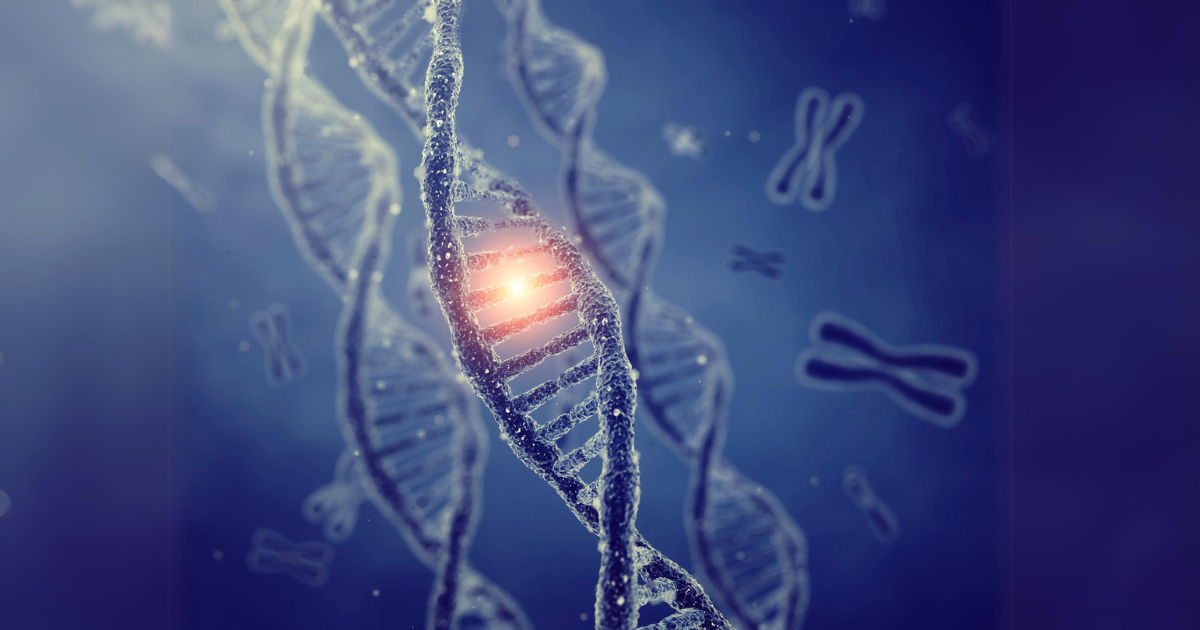
Anger V/s Frustration
Contents
Introduction
Anger and frustration are closely related emotions but differ in their triggers and expressions. Anger is a response to perceived injustice or threats, often leading to intense feelings and a strong desire to act. Frustration arises when goals are blocked or progress is hindered, leading to feelings of disappointment or irritation. While anger tends to be more intense and outwardly expressed, frustration is often subtler and builds over time. Recognizing the distinction between the two is key to understanding and managing emotional responses effectively.
In this article, we’ll see the key differences between anger and frustration, diving into their causes, effects, and how to manage them. Understanding these emotions can help you navigate challenging situations more effectively.
What is Frustration?
Frustration is an emotional response that occurs when a person feels blocked or thwarted in their efforts to achieve a goal or satisfy a need. It often arises when there’s a perceived gap between expectations and reality, leading to feelings of anger, annoyance, or helplessness. Frustration can be triggered by various factors, such as challenges, obstacles, or unmet desires in personal, professional, or social contexts. If left unaddressed, it can escalate into more intense emotions like anger or resentment, and can also affect mental and physical well-being.
What is Anger?
Anger is a complex emotional response characterized by feelings of frustration, irritation, or displeasure. It typically arises when an individual perceives a threat, injustice, or violation of their expectations. Anger can manifest in various ways, including:
- Physiological Responses: Increased heart rate, elevated blood pressure, and heightened arousal.
- Emotional Experience: Feelings of frustration, annoyance, or rage.
- Behavioral Reactions: Expressions of anger can range from mild irritation to aggressive outbursts.
- Cognitive Aspects: Thoughts often involve blaming others or feeling wronged.
its intensity and expression can vary. It can be a constructive force if managed well, helping individuals address grievances or assert boundaries. However, if uncontrolled, it may lead to destructive behaviors and harm relationships. Struggling with anger? Dive deep into effective anger management techniques in this insightful blog. Learn practical strategies to control and transform your anger for better emotional balance
Key Differences Between Frustration and Anger
This table highlights all the aspects of the difference between anger and frustration:
| Aspect | Frustration | Anger |
| Emotional Intensity | Typically manifests as mild to moderate irritation, creating a sense of annoyance or discontent that is usually less intense than anger. | Can range from mild irritation to intense rage, with stronger emotional responses and a more pronounced sense of injustice. |
| Trigger | Triggered by barriers to goal achievement or ongoing difficulties that prevent progress, such as repeated failures or obstacles. | Triggered by direct threats, perceived unfairness, personal insults, or violations of personal values or boundaries. |
| Emotional Response | Involves feelings of helplessness, disappointment, or discouragement. The response often includes a sense of being stuck or unable to progress. | Involves feelings of resentment, hostility, or aggression. The response often includes a drive to confront or retaliate against the source of the anger. |
| Physical Symptoms | Commonly associated with mild physiological responses like tension headaches, tight muscles, or stress but typically less severe. | Often accompanied by more pronounced physical symptoms such as increased heart rate, rapid breathing, muscle tension, and heightened arousal. |
| Behavioral Response | Responses often include passive actions such as withdrawal, avoidance, or expressing dissatisfaction in subtle ways. | Responses may involve more active behaviors like yelling, arguing, physical aggression, or confrontational actions. |
| Cognitive Focus | Focuses on the obstacles or setbacks that prevent achieving goals, often leading to self-blame or questioning one’s abilities. | Focuses on the perceived source of the threat or injustice, often leading to attributing blame to others and a desire to correct the perceived wrong. |
| Duration | Generally transient, resolving once the obstacle is overcome or the goal is achieved. It tends to dissipate once the source of frustration is removed. | Can be persistent, especially if the perceived injustice remains unresolved. Anger can linger and affect mood and behavior until the issue is addressed or managed. |
| Impact on Relationships | Can cause minor tensions or irritations in relationships, especially if frustrations are communicated poorly or frequently. | Can lead to significant conflicts or even damage relationships if anger is expressed aggressively or inappropriately, affecting trust and communication. |
Similarities Between Frustration and Anger
This table highlights all the aspects of the similarities between anger and frustration:
| Triggers | Both can be triggered by obstacles, setbacks, or challenges that interfere with goals or desires. |
| Emotional Intensity | Both involve heightened emotional responses that impact mental and emotional states. |
| Physiological Responses | Both lead to physiological changes such as increased heart rate, muscle tension, or stress. |
| Expression | Both can be expressed both internally (e.g., rumination) and externally (e.g., verbal outbursts). |
| Coping Mechanisms | Individuals may use similar coping strategies, such as problem-solving, seeking support, or relaxation techniques. |
| Duration | Both emotions can vary in duration, from being short-lived to persisting over time, depending on the situation and individual responses. |
What Causes Anger & Frustration?
Understanding what triggers anger and frustration is crucial because these emotions often intertwine. Long-term frustration can sometimes escalate into anger, while frequent anger can stem from underlying frustrations. Here’s a breakdown of common causes and triggers for both emotions:
- Stress at Work: High levels of job-related stress, such as tight deadlines, excessive workload, or conflicts with colleagues, can lead to both frustration and anger. When work demands become overwhelming, minor issues may trigger stronger emotional responses.
- Feeling Threatened or Attacked: Perceptions of physical or psychological threats can provoke anger as a defensive reaction. This includes feeling personally attacked or endangered, which can intensify both anger and frustration.
- Being Treated Unfairly: Experiencing or witnessing injustice, whether in personal relationships, at work, or in broader societal contexts, can lead to strong feelings of frustration and anger. The sense of unfairness can undermine one’s sense of justice and fairness.
- Feeling Vulnerable: Situations where one feels exposed or insecure, such as during personal or financial crises, can lead to heightened frustration and anger. Vulnerability often exacerbates emotional responses to stressors.
- Your Needs Going Unmet: When essential needs, such as emotional support, recognition, or basic comfort, are not fulfilled, it can result in frustration. Persistent unmet needs can lead to anger, especially if the neglect feels intentional or neglectful.
- Feeling Unheard or Unappreciated: Not feeling listened to or valued, whether in personal relationships or professional settings, can lead to frustration. Over time, this feeling of being overlooked can escalate into anger.
Strategies for Managing Frustration and Anger
Effectively managing frustration and anger involves understanding and addressing the underlying causes, as well as employing strategies to regulate emotional responses. Here are seven comprehensive strategies for managing these challenging emotions:
- Practice mindfulness & relaxation techniques
- Identify and challenge negative thought patterns
- Develop effective communication skills
- Practice mindfulness & relaxation techniques
- Identify and challenge negative thought patterns
- Develop effective communication skills

Practice Mindfulness and Relaxation Techniques
- Description: Mindfulness involves paying attention to the present moment without judgment, which can help in recognizing and controlling emotional reactions. Relaxation techniques, such as deep breathing, progressive muscle relaxation, or meditation, can reduce physical and emotional tension.
- Implementation: Set aside time each day to practice mindfulness or relaxation exercises. Use techniques like deep breathing (inhale deeply through the nose, hold for a few seconds, exhale slowly through the mouth) to calm immediate stress responses. Apps and guided sessions can also be useful for beginners.
Image Source: pexels.com

Identify and Challenge Negative Thought Patterns
- Description: Frustration and anger often stem from distorted or negative thinking. Identifying these thoughts and challenging their validity can help in managing emotional responses. Cognitive restructuring involves replacing irrational or exaggerated thoughts with more balanced and realistic ones.
- Implementation: Keep a journal to track negative thoughts and their triggers. Question the evidence for these thoughts and consider alternative perspectives. For example, if you think “This always happens to me,” challenge it by noting instances where things went well.
Image Source: pexels.com

Develop Effective Communication Skills
- Description: Clear and assertive communication can help in expressing frustrations and anger constructively, reducing misunderstandings and conflicts. Learning to communicate needs and concerns calmly and respectfully can prevent escalation and promote resolution.
- Implementation: Practice using “I” statements to express feelings without blaming others (e.g., “I feel frustrated when deadlines are missed” instead of “You never meet deadlines”). Active listening, where you reflect back what the other person has said, can also improve mutual understanding.
Image Source: pexels.com

Practice Self-Care and Healthy Lifestyle Choices
- Description: Maintaining a healthy lifestyle, including regular exercise, balanced nutrition, and adequate sleep, can improve emotional regulation and resilience. Self-care practices also help in managing stress, which is a common trigger for frustration and anger.
- Implementation: Incorporate physical activity into your routine, such as walking, yoga, or strength training. Eat a balanced diet rich in fruits, vegetables, and whole grains, and ensure you get enough restful sleep. Engage in hobbies or activities that bring joy and relaxation.
Image Source: pexels.com

Develop Coping Mechanisms and Set Boundaries
- Description: Establishing healthy coping mechanisms and boundaries can help manage frustration and anger. This includes recognizing when to take breaks, setting limits on stressful activities, and avoiding situations that exacerbate emotional responses.
- Implementation: Identify activities or strategies that help you de-stress, such as reading, spending time in nature, or engaging in creative pursuits. Set clear boundaries in relationships and work environments to protect your well-being, such as limiting overtime or setting aside personal time.
Image Source: pexels.com
Conclusion
Anger and frustration, though closely related, have distinct triggers and manifestations that influence how we experience and manage them. Anger often arises from perceived threats or injustices and tends to be more intense and outwardly expressed, while frustration typically builds over time due to obstacles and unmet goals, often resulting in subtler irritation. Recognizing these differences is crucial for effective emotional management. By understanding their causes and employing strategies like mindfulness, communication, problem-solving, and self-care, individuals can better navigate these emotions, fostering healthier interactions and emotional well-being.
References
- American Psychological Association. (2020). Anger and aggression.
- Beck, A. T., & Alford, B. A. (2009). Depression: Causes and treatment (2nd ed.). University of Pennsylvania Press.
- Campbell, J. L., & Gaudiano, B. A. (2014). Managing anger: Evidence-based strategies for mental health professionals. Springer.
- Frijda, N. H. (1986). The emotions. Cambridge University Press.
- Gross, J. J. (2002). Emotion regulation: Affective, cognitive, and social consequences. Psychophysiology, 39(3), 281-291.
- Lazarus, R. S. (1991). Emotion and adaptation. Oxford University Press.
- Lemerle, K., & Houghton, S. (2004). The impact of frustration on aggression and related behaviors. Social Behavior and Personality, 32(5), 439-456.
- Novaco, R. W. (1994). Anger control: The development and evaluation of an experimental treatment. Springer.
- Roseman, I. J., Wiest, C., & Swartz, T. S. (1994). Phenomenology, behaviors, and goals differentiate discrete emotions. Journal of Personality and Social Psychology, 67(2), 206-221.
- Smith, R. H., & Kim, S. H. (2007). Comprehending envy and jealousy. In J. P. Forgas, J. L. Cooper, & J. L. B. D. Hughes (Eds.), The social psychology of emotion (pp. 81-103). Psychology Press.



















